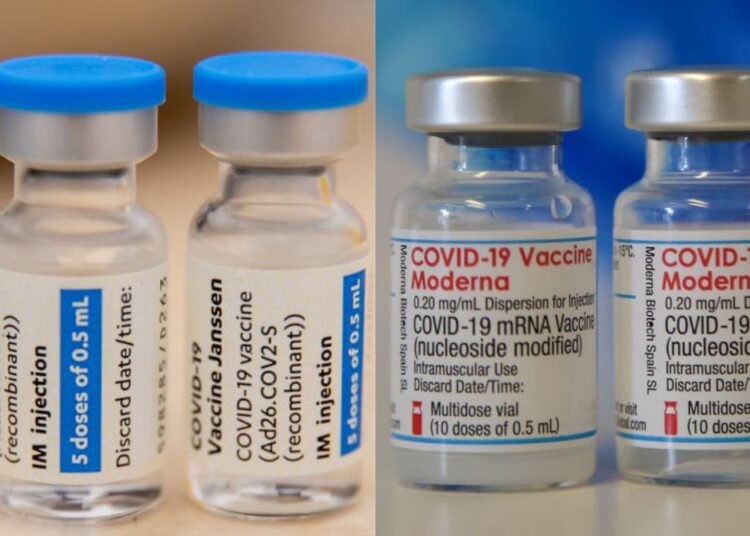WASHINGTON – A panel of advisers to the US Centers for Disease Control and Prevention (CDC) unanimously recommended use of COVID-19 vaccine boosters for many recipients of the Moderna Inc and Johnson & Johnson shots, a vote expected to pave the way for additional doses for millions of Americans.
The US Food and Drug Administration on Wednesday authorized the booster doses US FDA clears Moderna, J&J COVID-19 boosters, backs use of different vaccine for boost, and said Americans can choose a different shot from their original inoculation.
The CDC is expected to sign off in the coming days on the recommendations of the panel, and boosters could be available immediately afterward. Still, health officials and public health experts said the booster rollout could be confusing.
“I hope, certainly by the end of this day, that we will have some more coherence. But I think it will remain fairly complicated,” said Dr. William Schaffner, an infectious disease expert at Vanderbilt University Medical Center and a non-voting member of the CDC’s Advisory Committee on Immunization Practices (ACIP).
ACIP voted to recommend booster doses for everyone 18 and older who received a first dose of Johnson & Johnson’s vaccine at least two months earlier, Reuters reported.
For those who received their second dose of Moderna’s vaccine at least six months earlier, ACIP recommended a third shot for those age 65 and over, as well as some individuals at risk or severe illness and those at risk of exposure to the virus through their jobs.
The FDA and CDC previously signed off on booster shots of the COVID-19 vaccine from Pfizer Inc and partner BioNTech SE for the same groups included in the Moderna recommendations.
Some scientists have suggested that boosters are needed to keep immunity high, especially as the extremely contagious Delta variant of the virus can cause breakthrough infections among some who are fully vaccinated.
About 11.6 million people have so far received a booster dose, according to data from the CDC.
The FDA and CDC have been under pressure to authorize the additional shots after the White House announced plans in August for a widespread booster campaign.
Other countries such as Israel have begun offering boosters to a broad population, but it is not yet known whether the United States will follow suit.
Pfizer released data suggesting that a booster dose was highly protective for those age 16 and older compared with protection several months after receiving the two-dose regimen due to waning efficacy over time.






Discussion about this post